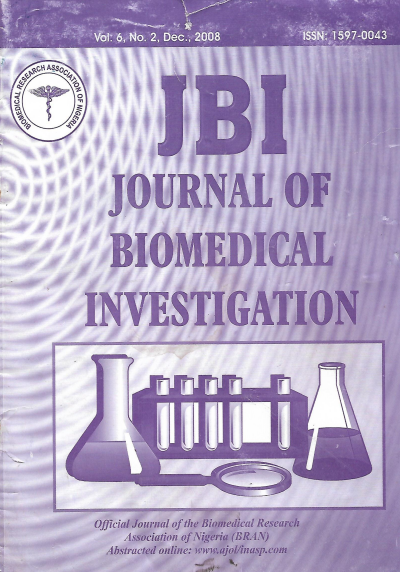Pattern of Biochemical Tests in A New Suburban Nigerian Teaching Hospital
Keywords:
Biochemical tests, chemical pathology, teaching hospital laboratoryAbstract
The utilization of biochemical tests is well established and justified in modern medicine. This study highlights findings in the Chemical Pathology Department of a suburban teaching hospital in eastern Nigeria. Our study highlighted annual variation of patients visit, with more visit between the months of March and August. This implies more visits during the rainy season. In this area, the most frequently requested biochemical tests includes; creatine (18.3%), urea (18.2%), glucose (15.2%), and electrolytes (14.8%). Others include urinalysis (7.9%), total protein (3.4%), albumin (3.1%), aspartate amino transferase-AST (2.6%), alkaline amino transferase-ALT (2.5%), lipids (2.5%), alkaline phosphatase (1.8%), calcium (1.6%), and prostate specific antigen-PSA (1.2%). The hormone tests such as tri-iodothyronine(T3), thyroxine(T4), and thyroid stimulating hormone (TSH), luetinizing hormone(LH), follicle stimulating hormone (FSH), prolactin, progesterone, testosterone, and estradiol are not commonly requested (0.4% each).The tumor markers alpha-feto protein(AFP) and beta- human chorionic gonadotrophin (bHCG) are rarely requested. This study reflects the overall activity of Chemical Pathology laboratory, revealing the tests more frequently requested; and also showing the period of the year when patients visit is more. Considering the high cluster of patients visit, between March and August, it appears people in this area presents with health problems needing medical attention more in the rainy season.




